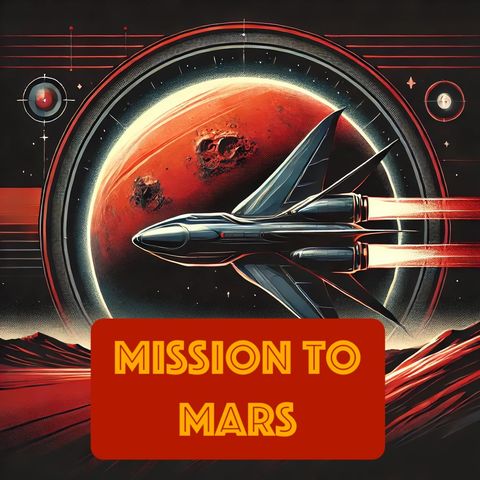"Libraries Blast Off with Innovative 'Mission to Mars' Programs, Sparking STEM Engagement in Communities"

Sign up for free
Listen to this episode and many more. Enjoy the best podcasts on Spreaker!
Download and listen anywhere
Download your favorite episodes and enjoy them, wherever you are! Sign up or log in now to access offline listening.
"Libraries Blast Off with Innovative 'Mission to Mars' Programs, Sparking STEM Engagement in Communities"
This is an automatically generated transcript. Please note that complete accuracy is not guaranteed.
Description
In recent times, libraries are transforming their roles from traditional silent zones to dynamic, interactive community hubs. The Lyons Recorder highlighted how exciting library programs like the “Mission to Mars”...
show moreThe “Mission to Mars” adventure illustrates a blend of creativity and science learning, taking children on an interactive journey through space exploration concepts connected to Mars. Libraries are capitalizing on the growing interest in space stimulated by global efforts to explore Mars, including NASA's Mars missions and the advent of private space ventures. By immersing kids in these thematic explorations, libraries foster an environment where learning science becomes as exciting as playing a game.
Moreover, the inclusion of activities like Lego and Play Doh play at the Lyons Library shows a tactical move toward STEM (Science, Technology, Engineering, and Mathematics) education. Legos, for instance, are often used in educational settings to teach basic engineering concepts and encourage problem solving. Integrating these tools with a thematic narrative like a mission to Mars cleverly embeds engineering challenges in a story format that is relatable and enjoyable for children.
Furthermore, these programs are not just about the hard skills. They equally emphasize the development of soft skills such as teamwork, creativity, and strategic thinking. Children participating in these activities must often work together to solve problems or build projects, which enhances their cooperative abilities and social skills.
Libraries also frame these science-centric themes within the broader context of literacy. By encouraging reading on topics related to Mars and space exploration, they promote literacy through content that children find compelling. This not only improves their reading skills but also increases their knowledge and understanding of scientific principles and global space exploration efforts.
The success of such programs also highlights the role of libraries as vital community centers that provide safe, accessible, and educational spaces for all children. They are becoming cornerstone institutions for out-of-school learning, ensuring that education continues beyond the classroom in a manner that adapplies concepts to real-world scenarios.
In the broader educational landscape, programs like those offered by the Lyons Library serve as critical supplements to school-based education. As educational curricula face increasing pressure to include more STEM content, libraries are stepping in to provide critical hands-on learning opportunities that schools may be unable to offer due to budgetary constraints or logistical issues.
In conclusion, the library's summer adventures, coupled with innovative programs like the "Mission to Mars," symbolize a progressive shift toward interactive and integrative approaches to education. They reflect a growing recognition of the importance of engaging children in science and technology through compelling, narrative-driven experiences. This holistic educational approach, blending traditional literacy with modern technology and interactive play, is setting a blueprint for how educational institutions can adapt to the needs of a changing world.
Information
| Author | QP-4 |
| Organization | William Corbin |
| Website | - |
| Tags |
Copyright 2024 - Spreaker Inc. an iHeartMedia Company
